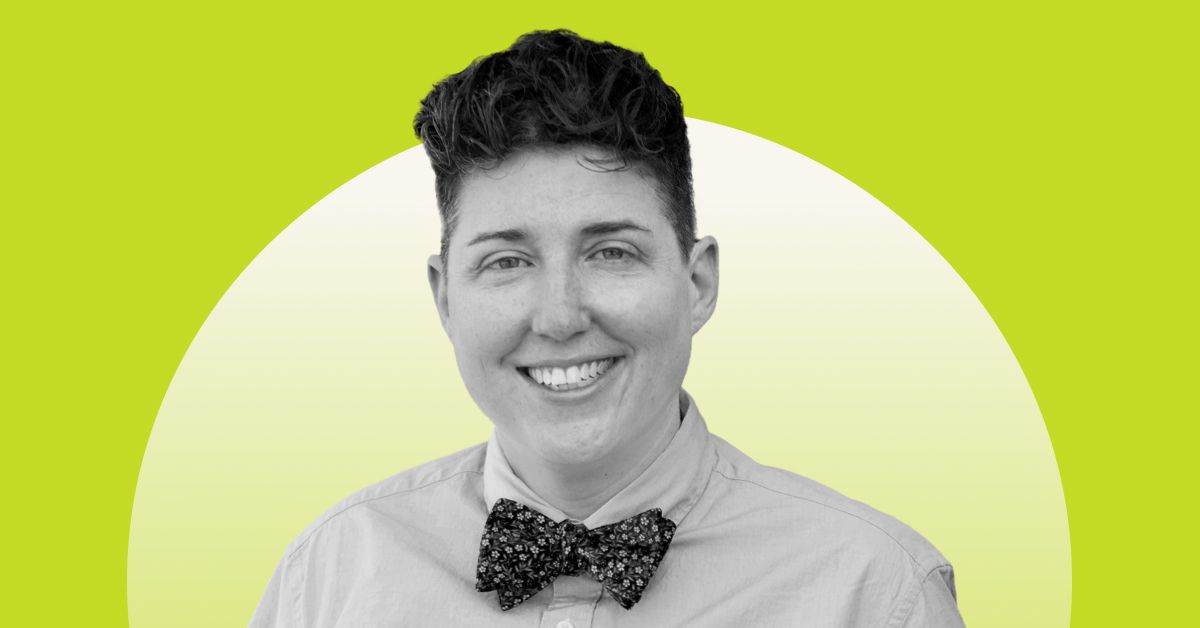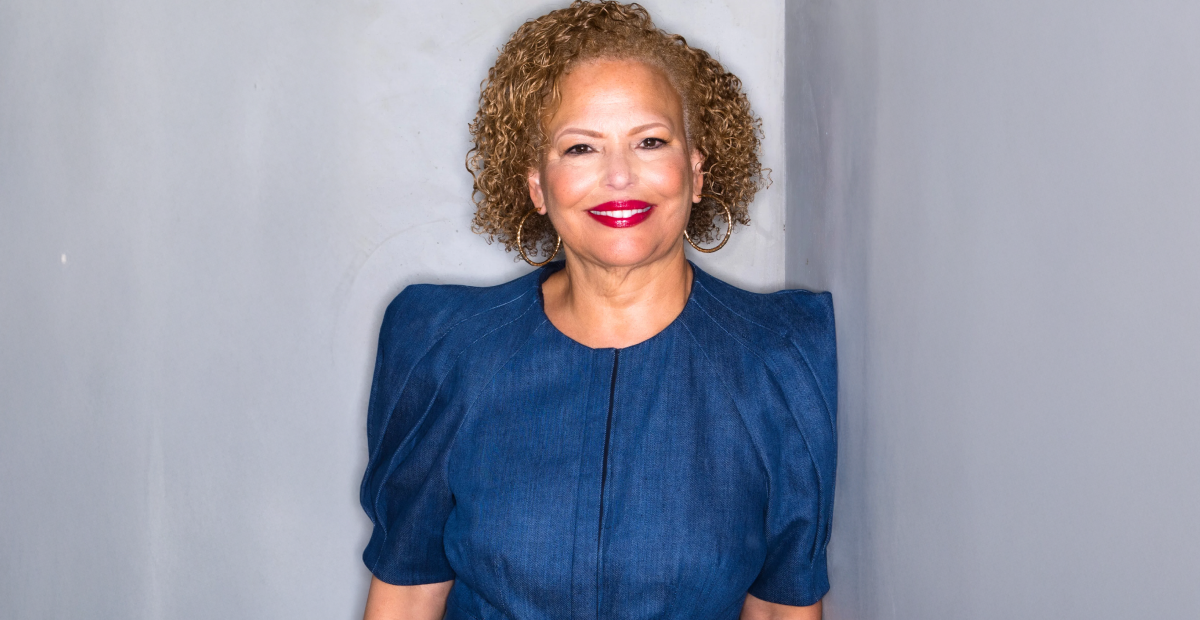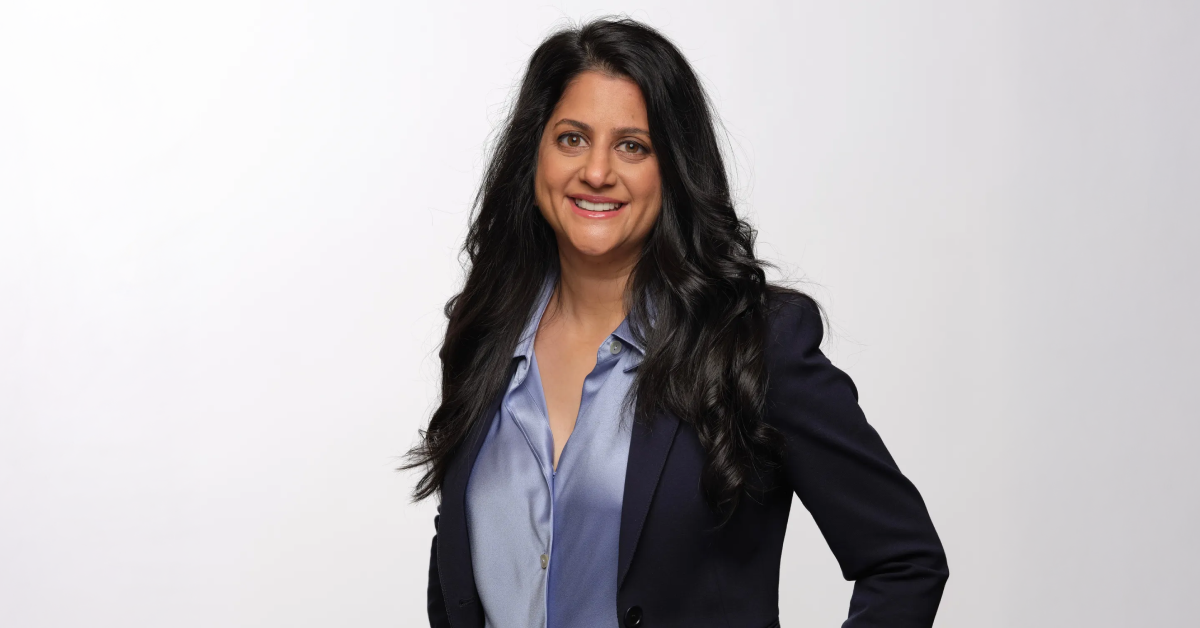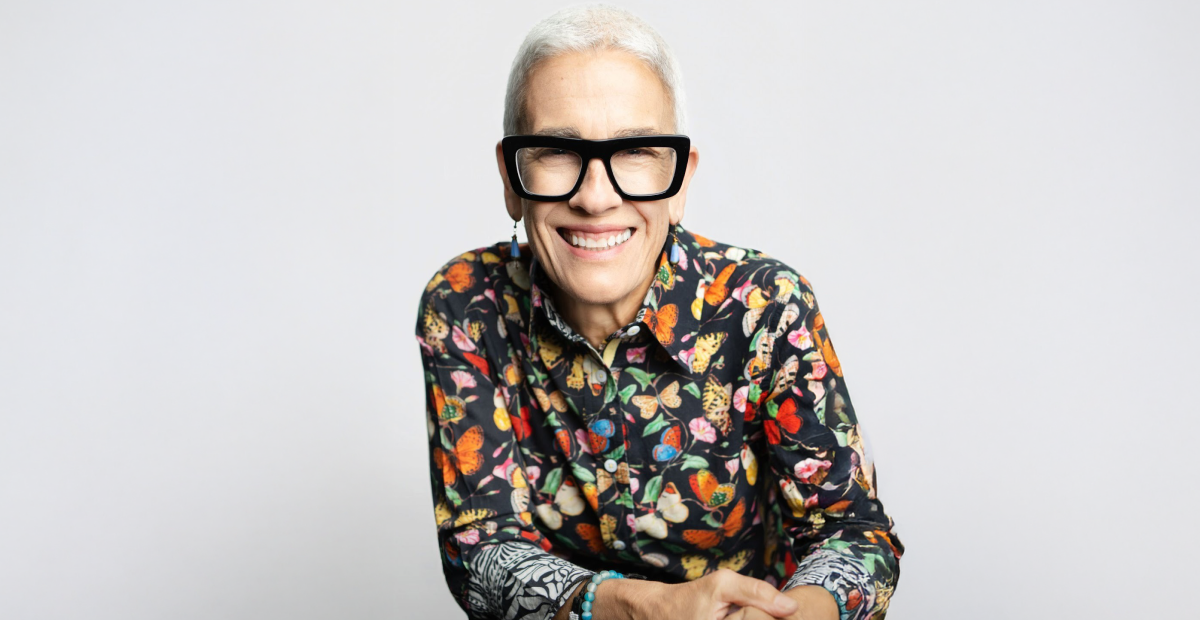The biggest career wins often come with risk. On our series, The Big Bet, Chief speaks with some of the most powerful members in our network about that single moment when they bet on themselves — and won.
Dr. Kade Goepferd, MD, is on double duty as an executive at Children’s Minnesota, a non-profit children's hospital based in the Twin Cities. As a non-binary pediatrician and educator, serving as both Chief Education Officer and Medical Director of the Gender Health Program proved to be a crucial evolution in Dr. Goepferd’s quest to create more equitable care for LGBTQIA+ youth. “I did an internship during my college years with an organization that was a federally qualified health center and mostly treated families, many of whom were recent immigrants, living below the poverty line,” says Dr. Goepferd. “I saw how medicine can coexist with social justice work and advocacy.”
When they landed at Children’s Minnesota 18 years ago (and eventually got promoted to the Chief Education Officer role 10 years ago), Dr. Goepferd saw the education program as an opportunity to amplify their advocacy work. “If I am in the room with a hundred families in a month, that's a hundred families I can impact, but if I'm teaching a hundred residents or clinicians in practice, and then they're each in the room with a hundred patients a month, then that's 10,000 patients that I'm reaching instead of a hundred,” they explain. Dr. Goepferd applied for the Chief Education Officer role (against a male candidate many years their senior) “with a vision of how I wanted to change the department and how I wanted to keep pace with the changing learning environment and needs for practicing clinicians,” they say. “Getting this position was probably one of the most important things I've done in my career.”
Dr. Goepferd also identified a need for a Gender Health Program at Children’s Minnesota, which they launched from scratch in 2019. By that point, they had worked with LGBTQIA+ patients, “many of whom were increasingly transgender and gender diverse, who were not getting the care that they needed anywhere else in the area, and it gave me the confidence and knowledge that I could advocate for a new program,” they say. “It was a lesson in advocating for my worth and what I knew I was bringing to the table.”
In this edition of The Big Bet, we chat with Dr. Goepferd about how embracing their authenticity as a non-binary pediatrician and physician leader has, in turn, allowed the executive to be a better advocate for young LGBTQIA+ patients.
How Being Championed Turned Them Into a Champion
“My biggest champion here at work is my current boss, who's the Chief Medical Officer. She's the one who reached out to me two years into my career, 16 years ago, and said, ‘I think you can do this teaching job.’ She’s been supportive and encouraged me along the way. I have taken that lesson from her and done a couple of things with it. I supported and encouraged her to apply for the Chief Medical Officer position that she now has, which was kind of a mutual mentorship situation. I’ve also created new opportunities for talented people who I know have potential. When I took over this department, there was one director position, and that was it. There were no other leadership positions. Since I’ve become the Chief Education Officer, I've promoted two other people in my department to director-level positions because I wanted to encourage their continued professional development and advancement.”
On An Early Career Bet That Paid Off
“My big bet moment happened 10 years ago in my mid-30s. I took a bet that I would do a good job leading a department that had been run by someone else for 25 years, and I went up against candidates who were in their 50s and had been doing this work for a lot longer than I had. I bet on myself that I could do it, and I exceeded people's expectations. I changed the department, I changed the role, and I became a respected leader in the organization and among the executive team.”
On Navigating Gender Discrimination As a New Parent
“When I came up with the idea of launching the Gender Health Program, everyone was telling me not to do it. At the time, I had twins who were under a year old, and many of the older men in the department were saying, ‘This is the wrong time in your career. Don't take this leadership position. You have too much on your plate.’ I knew full well that if I had been assigned male at birth, they would not be thinking about me balancing family and career in this paternalistic sense. And I said I will decide how I'm going to juggle my personal life relative to my professional life. Parenthood should not be a condition that prevents me from going forward and getting this job. I said I know I can do this, I know this is right, and I know I can make a change here.”
On Determining Your Own Timeline
“There's never really the right time to do anything that you want to do for yourself. People are always asking, ‘When’s the right time for me to start a family? When’s the right time for me to go back to school? Or when’s the right time for me to change jobs?’ There’s probably never going to be a ‘right’ time. So when the chance or the opportunity presents itself, jump on it.”
How Identifying as Non-Binary Shaped Their Leadership Journey
“As someone assigned female at birth and who identified as a woman for many years of my life, I've certainly experienced all of the sexism in the workplace that women and folks assigned female at birth do. As someone who is gender nonconforming and now identifies as non-binary, I’ve also contemplated how I fit into this esteemed profession, down to what clothes I wear. As a doctor, you're expected to dress professionally. Women’s dress clothes never really felt like me, and I was concerned about ways I might be stigmatized or treated differently if I wore masculine dress clothes. It wasn't until I got the leadership position that I stepped into being myself because I knew I would be a more authentic and effective leader if I wasn't trying to fit into other people's expectations. That’s when I started wearing bow ties as a way to show up professionally and not wear a full suit jacket like my male counterparts. Bow ties have become my signature look.
“I've heard other LGBTQ folks, and particularly gender nonconforming or trans folks, say that once they stepped into their authentic selves, they began to realize the depth of their own power. I think when we try to minimize ourselves, whether it’s because of race or class status or LGBTQ identities, we're sacrificing all of what we can bring to the table. For me as a non-binary pediatrician and physician leader, it's been important for me to show up as much as I can as my authentic self. There have been layers. It started with the bow tie. Then, a few years ago, I began to shift my pronouns from she/her to she/they, and now I’m always using they/them. Those slow shifts feel like me.”
On Evolving The Gender Conversation For Future Leaders
“What trans and gender diverse kids need now more than ever is culture change. Without it, we're going to constantly be fighting uphill battles to access care and to be included in schools and to be on sports teams and all of those things. To get that culture change, it's going to take some big bets, and I would like to be one of those people who at some point in my career takes a big bet to have a more national presence in changing that conversation. I did a TED Talk in 2020 about how gender identity develops in kids and how we can be more inclusive as pediatricians or parents or grandparents. Approximately 60,000 people have watched it. But, what if three million people watched it? What are the platforms that I can engage in on a more national stage to change the conversation and create inclusive culture? The good news is that the young people are already doing it for themselves. The fact that ‘they/them’ was the Merriam-Webster Word of the Year in 2019, because it was becoming so common a pronoun, speaks volumes to the culture change that's happening. The problem is that most of that change is happening among younger generations, and we need it to be more pervasive in the public health space, particularly among those in power and those who vote, and those who are making policy.



